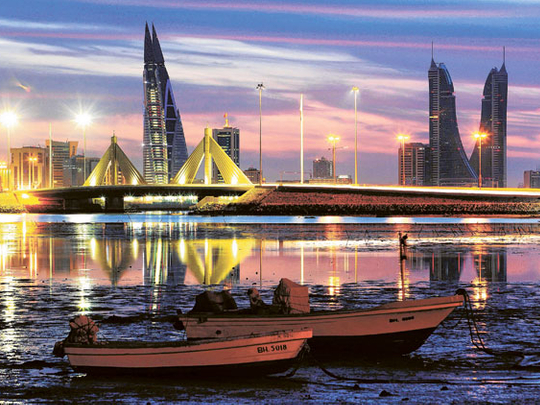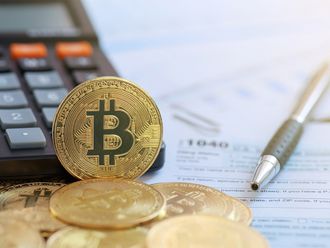
Bahrain's economy continues to reel under socio-political unrest dating back to mid-February. Costs include a drop in economic activity apart from a higher budget deficit.
It emerged recently that the unrest caused economic damage of up to $2 billion (Dh7.3 billion). This is a sizable amount by virtue of equalling 9.5 per cent of gross domestic product (GDP). Bahrain has a nominal GDP of $21 billion. The comments came from a qualified person, namely Esam Fakhro, chairman of the Bahrain Chamber of Commerce and Industry (BCCI). The Chamber looks after private sector interests.
Ostensibly, the econ-omic costs relate to damage occurring to some economic sectors notably retail, hospitality and events. Reflecting the uncertainty, some locals have chosen to limit their spending to essentials, and where possible delay purchases of durable goods.
Also, the hospitality sector is suffering from an overall drop in the number of visitors, notably from neighbouring Saudi Arabia, simply to avoid being caught up in street violence. Thousands of Saudi nationals tend to cross the causeway during the weekend, partly to enjoy the liberal lifestyle in Bahrain.
Additional losses concern the cancellation of events, such as hosting Formula One. The ruling body of F1 has dropped Bahrain from the 2011 calendar due to the political unrest. The next time Bahrain hosts F1 is in a distant November 2012. F1 is a contributor to Bahrain's economy through spending on ticket sales, TV coverage, transport, accommodation, food and beverage, merchandise and souvenirs and other leisure activities.
Another casualty relates to the widening fiscal shortfall. Recently, the authorities added $860 million to the 2011 budget to help cover a hike in salaries and pensions. This will raise total spending to a record $9.1 billion in 2011.
Nevertheless, stronger spending increases the deficit to $3.1 billion or one third of total spending. This level of shortfall contradicts a condition of the Gulf Monetary Union project, which restricts the deficit to three per cent of GDP.
Assistance
However, the actual deficit would most likely end up being less, as authorities have prepared the budget using $80 per barrel of oil. But it is widely expected that oil prices would average just above $100 per barrel this year.
Still, an additional source of income is the promised economic assistance of $10 billion by the Gulf Cooperation Council (GCC) countries. They have promised $10 billion to Bahrain and Oman over ten years to help the countries cope with the unrest. On a positive note, stronger spending should help Bahrain maintain an economic growth rate of around four per cent. Also, stronger spending and hence GDP growth helped convince Standard & Poor to remove the negative outlook from Bahrain's rating. Earlier in the year, S&P lowered Bahrain's long- and short-term sovereign ratings one notch to A-/A-2 with a negative outlook.
Another victim of the socio-political unrest relates to raising fresh doubts on the planned causeway link with Qatar. This issue came to light last week following the virtual cancellation of a joint Qatar-Bahrain insurance firm. Key investors in the firm attributed the decision to a lack of progress on the planned causeway linking Qatar and Bahrain.
The 40km causeway is to cost more than $3 billion. Yet political differences rather than funding seem to be the primary cause for the lack of real progress. In retrospect, the two countries settled a decade-long oil border dispute in 2001 thanks to a ruling by the International Court of Justice. And only recently, Qatar-based Al Jazeera added to the feud by airing a programme on the unrest in Bahrain.
All told, economic costs related to political unrest stand to rise further, which is not good for Bahrain.
The writer is a member of parliament in Bahrain.












